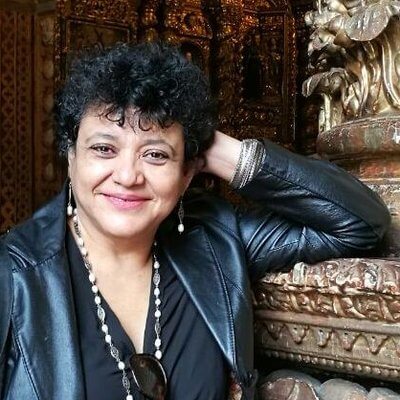
The UN International Day of the World’s Indigenous Peoples is recognized on 9 August each year. This date, chosen to commemorate the first meeting of the UN Working Group on Indigenous Populations (Geneva, 1982), celebrates indigenous identity and culture, and raises awareness of the unique challenges faced by the world’s estimated 476 million indigenous people.
Indigenous cultures are deeply connected to the natural environment, and indigenous communities, through values and practices that prioritise environmental stewardship over resource exploitation, manage many of the world’s healthiest ecosystems.
Dr. Krushil Watene, an Associate Professor in Philosophy at the University of Auckland explains how indigenous philosophies set out from the idea that our relationships with land- and waterscapes matter deeply, and that “we should protect, cultivate, and enhance rather than diminish these relationships.” She cites the example of the Māori word whenua, which means both land and placenta, recognizing and honouring, in language, the intimate human-nature relationship. “More generally, as Robin Kimmerer details, the word used for plants in some Indigenous North American languages literally means ‘those who take care of us’.” she cites.
Last June, a CFRS panel highlighted the essential role played by indigenous environmental defenders in protecting much of the world’s remaining biodiversity from environmental destruction, which all too often places them and their communities in danger. “The languages, knowledges, and values of indigenous communities are embedded in land- and seascapes within territories that cover approximately 24% of the land worldwide and host 80% of the world’s biodiversity.” reminds Dr. Watene.
Recent reports highlight how such communities are disproportionately affected by violent attacks, that are globally escalating in frequency among environmental activists and advocates. As highlighted by Dr. Watene, these attacks occur on multiple fronts, involving: a lack of recognition of the existence of indigenous communities, the dismissal of their rights and claims, land dispossession, loss of livelihoods, environmental destruction, challenges to the credibility of indigenous knowledge and practices, as well as various forms of violence and intimidation.
“A recent article published in Science Advances by Arnim Scheidel and a number of collaborators that included indigenous scholars, highlights the serious impact that environmental conflicts have on indigenous communities.” says Dr. Watene. “The authors highlight the way in which Indigenous stewardship practices offer key solutions to mitigate climate change, and support transformative change globally. They also point out, however, that the ways in which these communities do this is precisely by protecting their territories from extractive and other kinds of development pressures. This leaves indigenous communities extremely vulnerable in the face of development projects, and vulnerable to attacks.” This dynamic illustrates how the need to safeguard the environment intersects with the urgent need to protect indigenous communities.
The work of indigenous environmental defenders is also of critical importance to science. They advocate for sustainable practices (the urgency of which is supported by science), preserve the ecosystems that scientists study, and collect many of the data used by scientists in their research.
“Indigenous communities are often the first to understand the impacts of the challenges that we face globally such as, for instance, a changing climate. Their attention to subtle changes to ecological processes arises from their deep attachment and understanding of their territories.” says Dr. Watene. “That scientific knowledge has always been fundamental to their survival, transformation, and flourishing – or what Kyle Whyte terms ‘collective continuance’.”
Many indigenous environmental defenders are scientists themselves. Indigenous knowledge and practices should be more widely recognized for their important contributions to the science of environmental protection and sustainability. The silencing of indigenous voices seeking to protect the natural environment goes against the Principle of Freedom and Responsibility in Science, which the CFRS works to promote and uphold.
“Many of the crimes against indigenous environmental defenders are not reported to state authorities – sometimes for fear of reprisals – or are presented by state authorities as decontextualized, common crimes without reference to the defence of natural environments, traditional ways of life, and indigenous territories.” warns Dr. Maria Luisa Acosta, human rights defender at CALPI – Centro de Asistencia Legal a Pueblos indígenas.
For Dr. Acosta, the fact that indigenous communities are generally located in remote places and have a different language, culture, and worldview compared with the dominant societies surrounding them, makes it “very difficult to present themselves before judicial systems shaped by cultures that correspond poorly with their own.”
“According to international human rights law, states are also obligated to investigate and prosecute human rights violations committed in their jurisdictions, as well as to guarantee the non-repetition of violations against victims.” she reminds. “Therefore, state inaction through a lack of protection and the subsequent failure to investigate such violations, hold states as ultimately responsible.”

Krushil Watene (Ngāti Manu, Te Hikutu, Ngāti Whātua o Orākei, Tonga)
Peter Kraus Associate Professor in Philosophy, University of Auckland Waipapa Taumata Rau, Aotearoa New Zealand
Dr. Watene’s research addresses fundamental questions in ethics, politics, and Indigenous philosophy.
In particular, it engages at the intersections of diverse philosophical traditions, trans-disciplinarity, and the role of local communities for global change.
Dr. Watane is a member of the CFRS and was a panelist at the CFRS’ SRI session in Panama.

President of the Academy of Sciences of Nicaragua, Coordinator of the Diploma in Human Rights and the Faculty of Law, Universidad Centroamericana (UCA) Managua, Nicaragua, Coordinator of the Centro de Asistencia Legal a Pueblos Indígenas (CALPI), Nicaragua
Dr. Acosta is a human rights defender, working with CALPI to support and realize the rights of Indigenous and Afro-descendant peoples and communities in Nicaragua.

Attacks on Environmental Scientists: Implications for the Free and Responsible Practice of Science
To learn more about attacks on environmental scientists and their consequences on the free and responsible practice of science, you can read the summary of the key points addressed during the CFRS panel at this year’s Sustainability Research + Innovation Congress (SRI).
Image by Vlad Hilitanu on Unsplash.